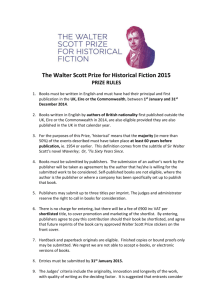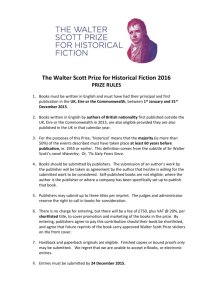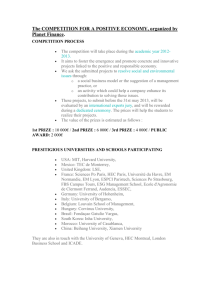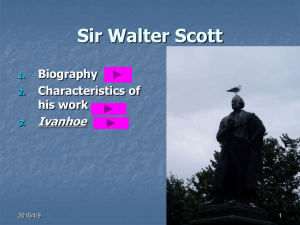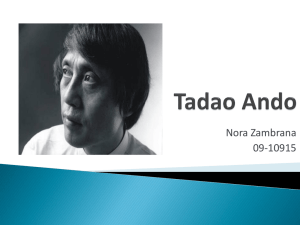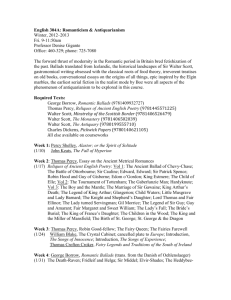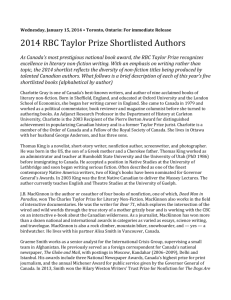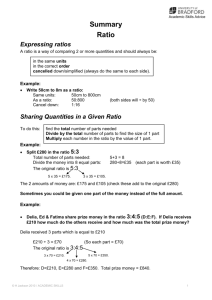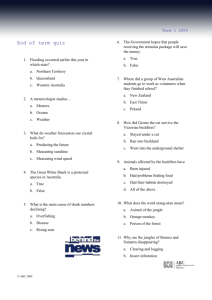Shortlist press release 2015 final
advertisement
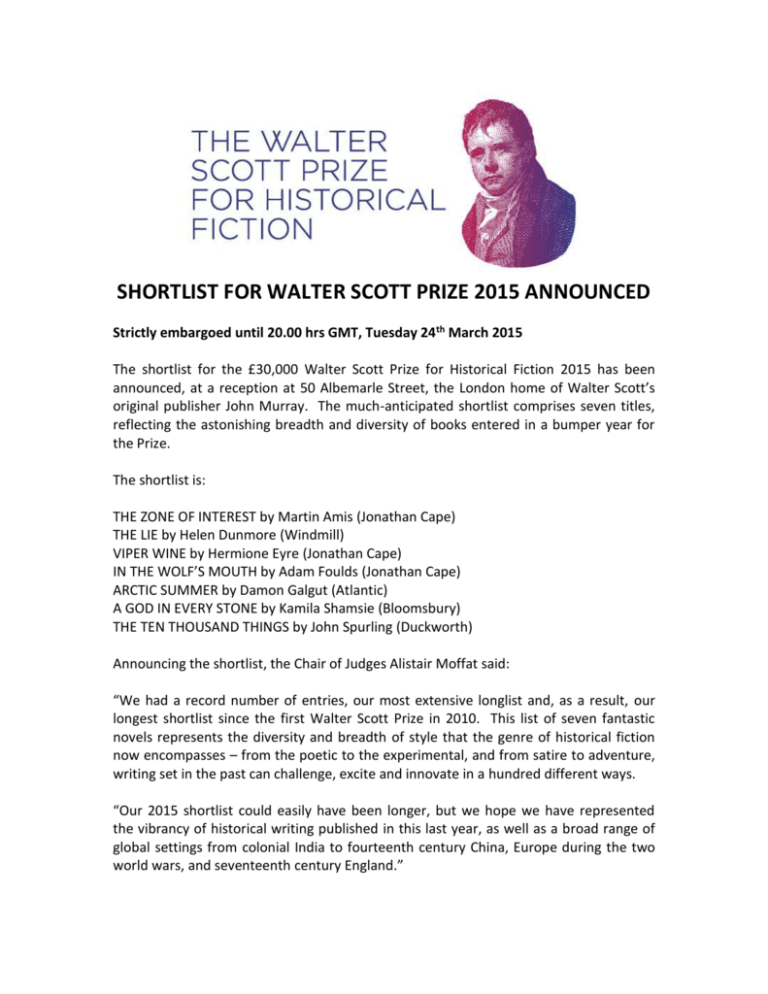
SHORTLIST FOR WALTER SCOTT PRIZE 2015 ANNOUNCED Strictly embargoed until 20.00 hrs GMT, Tuesday 24th March 2015 The shortlist for the £30,000 Walter Scott Prize for Historical Fiction 2015 has been announced, at a reception at 50 Albemarle Street, the London home of Walter Scott’s original publisher John Murray. The much-anticipated shortlist comprises seven titles, reflecting the astonishing breadth and diversity of books entered in a bumper year for the Prize. The shortlist is: THE ZONE OF INTEREST by Martin Amis (Jonathan Cape) THE LIE by Helen Dunmore (Windmill) VIPER WINE by Hermione Eyre (Jonathan Cape) IN THE WOLF’S MOUTH by Adam Foulds (Jonathan Cape) ARCTIC SUMMER by Damon Galgut (Atlantic) A GOD IN EVERY STONE by Kamila Shamsie (Bloomsbury) THE TEN THOUSAND THINGS by John Spurling (Duckworth) Announcing the shortlist, the Chair of Judges Alistair Moffat said: “We had a record number of entries, our most extensive longlist and, as a result, our longest shortlist since the first Walter Scott Prize in 2010. This list of seven fantastic novels represents the diversity and breadth of style that the genre of historical fiction now encompasses – from the poetic to the experimental, and from satire to adventure, writing set in the past can challenge, excite and innovate in a hundred different ways. “Our 2015 shortlist could easily have been longer, but we hope we have represented the vibrancy of historical writing published in this last year, as well as a broad range of global settings from colonial India to fourteenth century China, Europe during the two world wars, and seventeenth century England.” The Walter Scott Prize, founded in 2009 by the Duke and Duchess of Buccleuch and awarded at the Brewin Dolphin Borders Book Festival in June, is the largest annual fiction prize to be judged outside London, and honours the legacy and achievements of Sir Walter Scott, founder of the historical novel. The winner receives £25,000, and each of the shortlisted authors receive £1000, making the 2015 total prize worth £31,000. The shortlist was announced at a reception attended by authors and the publishing world in the historic rooms at 50 Albemarle Street, where Sir Walter Scott attended ‘4 o clock Friends’ gatherings hosted by his friend and publisher John Murray, and which brought together the most celebrated literary figures of the day. At the reception, the actor Crawford Logan evoked the spirit of Sir Walter with some readings from his Journals, and the Prize sponsor the Duke of Buccleuch explained his own historic links with Scott and his motivation behind the founding of the Prize. The judging panel for the Walter Scott Prize for historical fiction comprises Kirsty Wark, Louise Richardson, Jonathan Tweedie, Elizabeth Laird, Elizabeth Buccleuch, and chair Alistair Moffat. The judges’ criteria include originality and innovation, quality of writing, and a strong narrative. For the purposes of the Prize, ‘historical’ means that the majority (ie more than 50%) of the events described must have taken place at least 60 years before publication, ie. 1954 or earlier. This definition comes from the subtitle of Sir Walter Scott’s novel Waverley; Or, ’Tis Sixty Years Since. To be eligible, books must be written in English and must have had their first publication in the UK, Eire or the Commonwealth, between 1st January and 31st December 2014. Books written in English by authors of British nationality first published outside the UK, Eire or the Commonwealth in 2014, are also eligible provided they are also published in the UK in that calendar year. Shortlisted authors are invited to attend the award ceremony and announcement on Saturday 13th June 2015, which is a public event as part of the Brewin Dolphin Borders Book Festival in Melrose, near Scott’s home Abbotsford in the Scottish Borders. ABOUT THE SHORTLISTED BOOKS The Zone Of Interest by Martin Amis Set in Auschwitz, Martin Amis’ 14th novel tells the story of a Nazi officer who has become enamoured with the camp commandant’s wife. The Judges said: “The Zone of Interest is a brutal, almost unbearable story that is compellingly readable. In brilliant prose, Martin Amis's characters transcend the "banality of evil". They are fleshed out, monstrous, and all too real. It is a bold writer who can bring satire to the ghastliness of the Final Solution. The Prize applauds Martin Amis for his anger and audacity.” The Lie by Helen Dunmore The horror of the trenches haunts a soldier’s return to his Cornish village in this tender tale about the fallout from war. The Judges said: “The visceral nature of war hits you from the first page, as well as the extreme difficulties of life after the ending of war. Helen Dunmore brings new insight into this much-visited historical subject, and the novel is also a profound and tender investigation of mental illness.” Viper Wine by Hermione Eyre Viper Wine tells the story of the explorer and diplomat Sir Kenelm Digby and his wife Venetia, an English society beauty searching for the secret of eternal youth. The Judges said: “Viper Wine deals with the obsessive vanity of the seventeenth century court, and Hermione Eyre tells this story brilliantly through the eyes of Venetia the once ravishing society IT girl, and her husband Sir Kenelm Digby. Eyre’s prose is as sensuous as her subject, while her enthusiasm and verve are infectious. Uniquely, twenty-first century references run through this book, reflecting the wonders of the age and the obvious parallels with today’s society.” In the Wolf’s Mouth by Adam Foulds Set in North Africa and Sicily at the end of World War II, In the Wolf’s Mouth follows the Allies’ botched ‘liberation’ attempts as they chase the Nazis north toward the Italian mainland. The Judges said: “This is an extraordinarily truthful view of history and war; a web of lives forming an intricate pattern, where the forces unleashed by war draw everyone out of their familiar worlds. With it they bring the baggage of the past and their home cultures. You can vividly feel the violent sunshine of the Sicilian hill in Adam Foulds’ poetic descriptions.” Arctic Summer by Damon Galgut In this fictionalized biography of author E.M. Forster, Damon Galgut focuses on Forster's many years in India and the process of writing his masterpiece, A Passage to India. The Judges said: “E. M. Forster, diffident, self-doubting and longing for the fulfilment of an affectionate relationship, springs to life in Damon Galgut's perfectly judged and sensitively written novel, which brings new insights to the mystery at the heart of A Passage to India, Forster's final masterpiece.” A God in Every Stone by Kamila Shamsie Opening on the eve of the First World War in the Ottoman Empire in Turkey, the novel ends with a bloody massacre in the heart of the British Empire in India. Running through it is the story of an ancient lost treasure, a silver circlet, given to the explorer Scylax by the Persian King. The Judges said: “Kamila Shamsie animates a moral argument in this powerful novel with vigour, passion and style. A God in Every Stone careers along with unstoppable momentum, scooping up characters and attitudes, throwing the reader into the maelstrom of stirring historical events and the lives swept up in them." The Ten Thousand Things by John Spurling This novel takes place in 14th-century China, during the final years of the Mongol-ruled Yuan Dynasty, and is the story of Wang Meng, one of the era’s four great masters of painting. The Judges said: “The Ten Thousand Things is subtle and rewarding. Through John Spurling’s writing you feel as though you are reading Wang Meng’s paintings as he created them. It is a mesmerising, elegantly drawn picture of old imperial China, which feels remarkably modern." ENDS…/ For further information, review copies and images, please contact: Rebecca Salt or Nicky Stonehill at StonehillSalt PR Tel: 01620 829 800 or 07970 783213 email: rebecca@stonehillsalt.co.uk www.walterscottprize.co.uk NOTES TO EDITORS Photographs from of the shortlist announcement reception, book jackets and author images are available from StonehillSalt PR The Walter Scott Prize is one of the top five annual fiction prizes in the UK, along with the Man Booker Prize, the Folio Prize, the Costa Awards and the Bailey’s Prize. The prize is made possible by the generosity of the Duke and Duchess of Buccleuch, who are distant kinsmen of Sir Walter Scott and patrons of the arts. The winner receives £25,000 and an exquisite glass trophy, and there are runners-up prizes of £1,000 for each shortlisted author, making the total prize worth £31,000 in 2015. The previous winners of the Walter Scott Prize for historical fiction are Wolf Hall by Hilary Mantel (2010), The Long Song by Andrea Levy (2011), On Canaan’s Side by Sebastian Barry (2012), The Garden of Evening Mists by Tan Twan Eng (2013), and An Officer and a Spy by Robert Harris (2014). The winner will be announced on Saturday 13th June 2014 at the Brewin Dolphin Borders Book Festival in Melrose, Scotland. Shortlisted authors have also been invited to take part in a panel discussion on historical fiction the same day. Further information about the Prize and previous winners is available at the newly relaunched website: www.walterscottprize.co.uk
